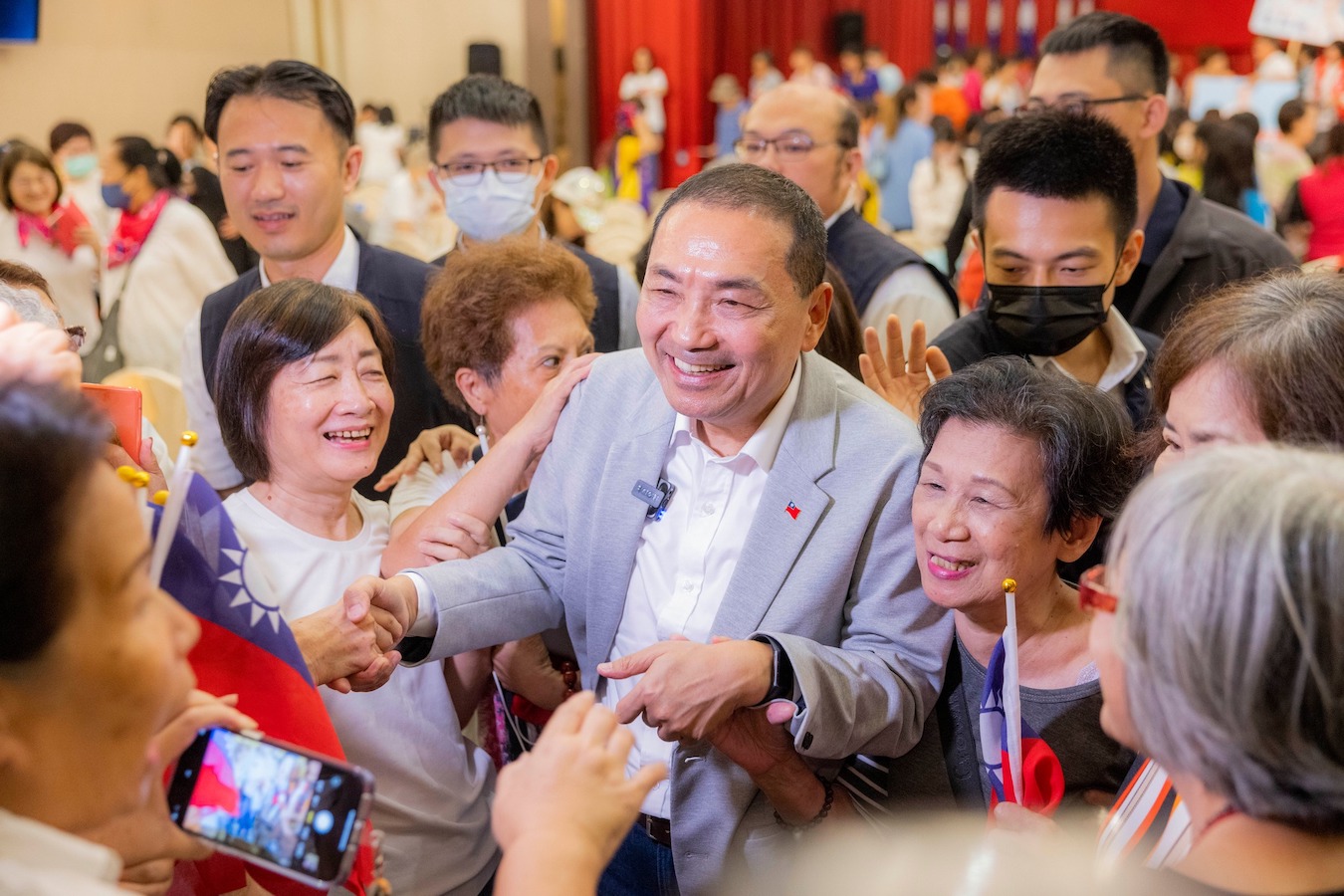by Brian Hioe
語言:
English
Photo Credit: Terry Gou/Facebook
FOXCONN FOUNDER Terry Gou announced a presidential run this morning, throwing his hat into the ring of an already crowded race. This puts an end to months of speculation about whether Gou would run or not. Gou will now need to collect 290,000 signatures to run for president as an independent, an approach that has only been carried out by a few candidates in Taiwanese history. To date, those successful in collecting that many signatures have not won.
Gou previously sought the KMT’s presidential nomination, but was not granted it, seeing as this year’s presidential and legislative nominations were not decided through an open primary but a closed nomination process by the party leadership. It was originally thought that the closed nomination process was a means by which party chair Eric Chu sought to close ranks and force out New Taipei mayor Hou You-yi, then the presidential frontrunner for the KMT in favor of himself.
However, Chu was quickly marginalized once Gou announced his intention to run as a KMT candidate. The closed nomination process, then, ironically enough, led to Hou becoming named the KMT’s presidential candidate over Gou, rather than this being used as a means of shutting Hou out. Though at the time, Gou stated that he would support Hou and abide by the will of the party, this soon proved not to be the case.
Facebook post by Terry Gou announcing his run
What instead took place was that Gou continued to carry on as though he were running for president, while playing coy whenever asked if he genuinely intended to run or not. Gou was likely aiming for a form of strategic ambiguity in order to test the waters as to the possibility of a presidential run.
This contributed to the marginalization of Hou You-yi as a candidate. Though before the presidential election cycle started, Hou was highly popular, Hou’s campaign quickly stalled. Apart from Hou coming under fire from the public for refusing to commit to firm political stances and facing skepticism from deep Blue ideologues who suspected he potentially could be a pan-Green turncoat, Hou faced steep competition from TPP presidential candidate Ko Wen-je. The addition of Gou to the equation, then, further marginalizes Hou.
By contrast, Gou’s speech in announcing his run claimed that he hoped to build consensus among opposition parties in Taiwan. While Gou does not have an independent party backing his run in the manner of Ko Wen-je’s TPP, Gou announced his run under the auspices of his “Mainstream Opinion Alliance” (主流民意大聯盟).
It is expected that Gou will play off of splits within the pan-Blue to recruit mostly KMT legislators to his Mainstream Opinion Alliance. Successes by Gou to date include convincing former Miaoli magistrate Hsu Yao-chang to withdraw from the KMT to align with him. Gou has started to appear on campaign billboards of KMT legislative candidates, such as occurred with five legislative candidates on a KMT billboard in Kaohsiung, as though he were the KMT presidential candidate. KMT politicians, such as Kinmen legislator Chen Yu-jen, have sometimes sought to present themselves as supporting both Gou and Hou.
It is to be seen what occurs next for Gou’s run, then. As political candidates experience an uptick in approval rating when they announce a run, it is probable that Gou will experience a halo effect for some time, which may occlude more realistic assessments of his strength as a candidate.
This is not Gou’s first time seeking to run for the presidency either. Gou has been angling for a run for more than ten years and in 2020, he sought the KMT’s presidential nomination but was defeated. Afterward, Gou quit the KMT, criticizing the party for an internal lack of democracy. That being said, before being shut out by the KMT’s internal nomination process during the present election cycle, Gou apologized to the KMT, asking to rejoin so as to be able to contribute to the party.
 KMT presidential candidate Hou You-yi (center), meeting with supporters. Photo credit: Hou You-yi/Facebook
KMT presidential candidate Hou You-yi (center), meeting with supporters. Photo credit: Hou You-yi/Facebook
Even if Gou has announced a run as an independent, it is still speculated as to whether he could align with Ko Wen-je and the TPP, or go wholly independent. Other suggestions floated are that the KMT could even swap out Hou with Gou, as Gou supporters in the KMT have sometimes called for, in the manner of how Hung Hsiu-chu was swapped out for Eric Chu as the KMT’s candidate at a late stage in the 2016 presidential election cycle. As presidential candidates must register with the Central Election Commission between November 20th and November 24th, the exact arrangement of candidates may be up in the air for some time.
Still, Gou is generally expected to run as an independent, with alignment with Ko ruled out due to neither candidate wanting to serve as the vice presidential candidate of the other, but both aiming for the presidency. Further splitting the pan-Blue vote may lead to a DPP victory, though this is not assured.
Otherwise, in announcing his run, Gou touted his experience as a tech company CEO, suggesting that he could boost Taiwan’s development economically in line with the Singaporean example, and make Taiwan into an AI power. Gou likewise framed the DPP as having brought Taiwan to a crisis, in terms of cross-strait relations, pledging to maintain peace and protect the ROC. Gou will probably lean into the framing of the DPP as a cross-strait provocateur while touting his Kinmen peace proposal as a way to resolve tensions with China. To this extent, Gou will lean on his business credentials to claim that he can turn around Taiwan’s economy at a time when the public hopes for stronger economic growth.

